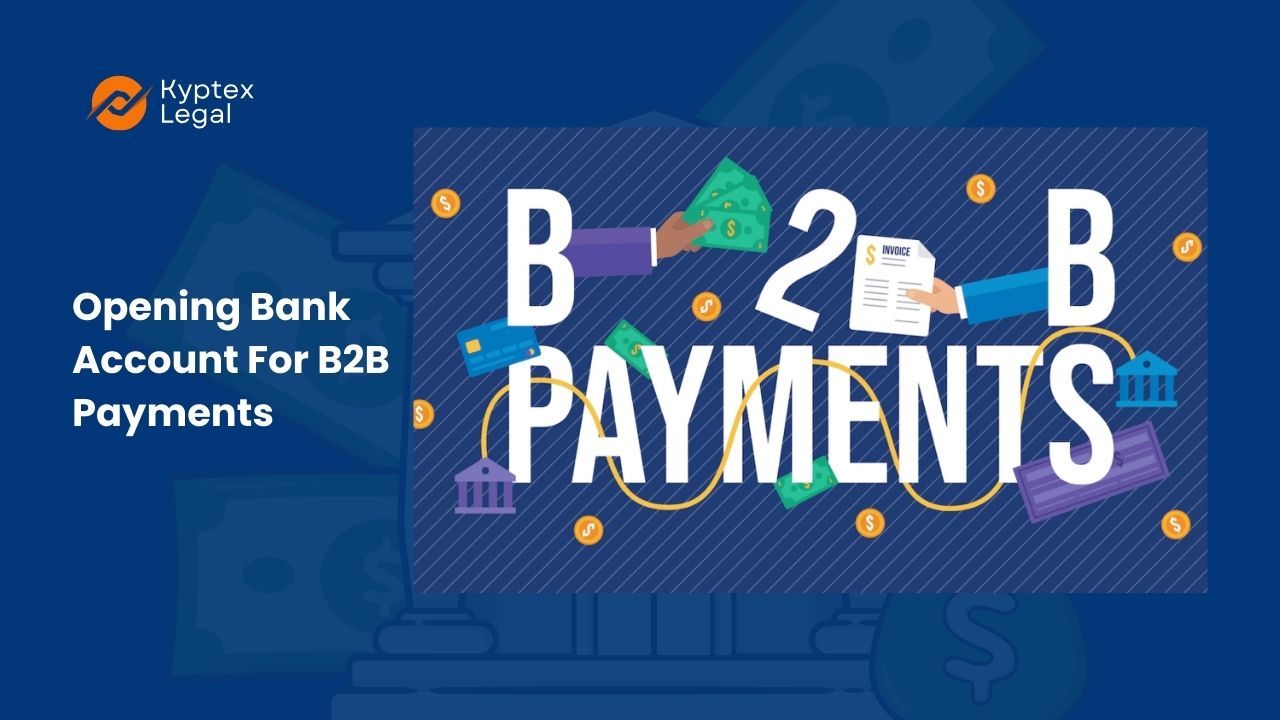
The opening of a dedicated business bank account is one of the most critical stages in ensuring the seamlessness of B2B payments.
Types Of Bank Accounts Suitable For B2B Payments
Dedicated Business Account
A dedicated business account is the most frequently employed bank account for B2B payments. It facilitates daily operations, including the payment of suppliers, the receipt of client payments, and the management of payroll. Additional features, such as access to online banking, multiple signatories, and higher transaction limits, are frequently included with business accounts.
Merchant Account
In addition to a dedicated business account, a merchant account is required if your business accepts credit card payments. A merchant account provides the ability to process debit and credit card transactions, thereby providing the flexibility to receive payments. Merchant accounts are frequently packaged with payment gateway services or point-of-sale systems.
Foreign Currency Accounts
If your business frequently conducts cross-border transactions, opening a foreign currency account can result in reduced exchange rate fees and more efficient international payments. Having a foreign currency account allows you to maintain balances in multiple currencies, which enhances cash flow management and reduces exposure to exchange rate fluctuations.
Common Steps To Open A Bank Account For B2B Payments
Step 1: Choosing The Bank
When it comes to commercial banking services, not all banks are created equal. Factors such as transaction fees, customer service, online banking features, and support for international payments should be taken into account when selecting a bank.
Step 2: Gathering Documentation
In order to establish a business bank account, you will be required to submit specific documentation. Typically, these consist of:
– Certificate of business registration
– Employer identification number (EIN) or tax identification number
– Articles of incorporation
– Personal identification, such as a passport or driver’s license
– Verification of business address
It is advisable to consult with your preferred financial institution in advance, as each institution may have slightly different requirements.
Step 3: Add Features
Once your documents are in order, you will need to determine the account type that is most suitable for your business requirements. The majority of businesses commence operations with a fundamental dedicated business account; however, if you anticipate accepting card payments or transacting in multiple currencies, you may require additional accounts or services.
When selecting an account, it is also important to consider the features that will be most beneficial for your business. Certain financial institutions provide:
– Tools for invoicing that are integrated
– Software for managing expenses
– Automated payment scheduling
– Payments in Bulk
– Forex risk management
– Order restrictions
– On-ramp and off-ramp for cryptocurrency
Step 4: Set Up Online Banking
Robust online banking tools are essential for administering B2B payments, and numerous banks provide them. Ensure that the online portal or application of your bank is user-friendly and aligns with the requirements of your business.
Step 5: Monitor And Reconcile Transactions Regularly
It is imperative to consistently monitor and reconcile your B2B payments to guarantee their accuracy. This entails the comparison of your bank statements with internal payment records to detect accounting errors, unauthorized transactions, or discrepancies. Online banking tools frequently enable you to automate portions of this process, thereby simplifying the process of managing your finances.
Best Practices For Handling B2B Payments
Ensure Timely Payments to Suppliers
Business continuity necessitates the preservation of robust supplier relationships. Ensure that you never miss a due date by setting up automated payments. This can help you avoid late fees and facilitate positive partnerships.
Offer Multiple Payment Methods
Your incoming payments can be streamlined by offering a variety of flexible payment options. Offering a variety of payment methods, including wire transfers, credit card payments, PayPal, and local payment methods like ACH, FPS, or SEPA, increases the probability that your clients will pay on time.
Stay Informed About Transaction Fees
Fees are associated with each payment method. For instance, wire transfers frequently incur higher fees than local payment methods, and credit card payments may be subject to a processing fee. In the long term, it is possible to save money by comprehending these expenses and negotiating more favorable terms with your bank.
Conclusion
For any organization that wishes to optimize its financial operations, promote professionalism, and guarantee legal compliance, it is imperative to establish a business bank account for B2B payments.